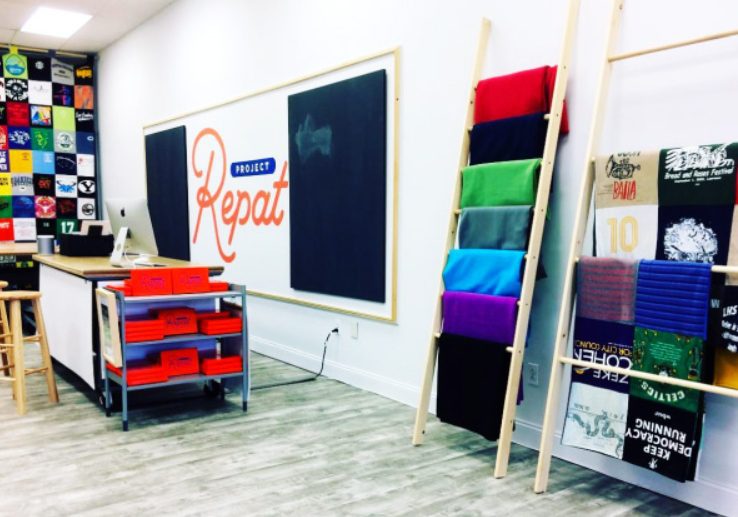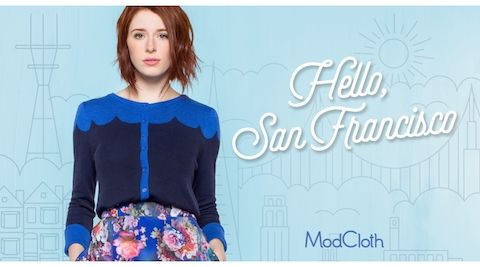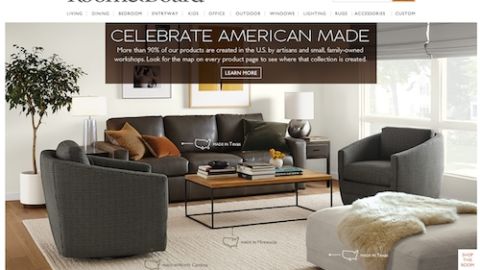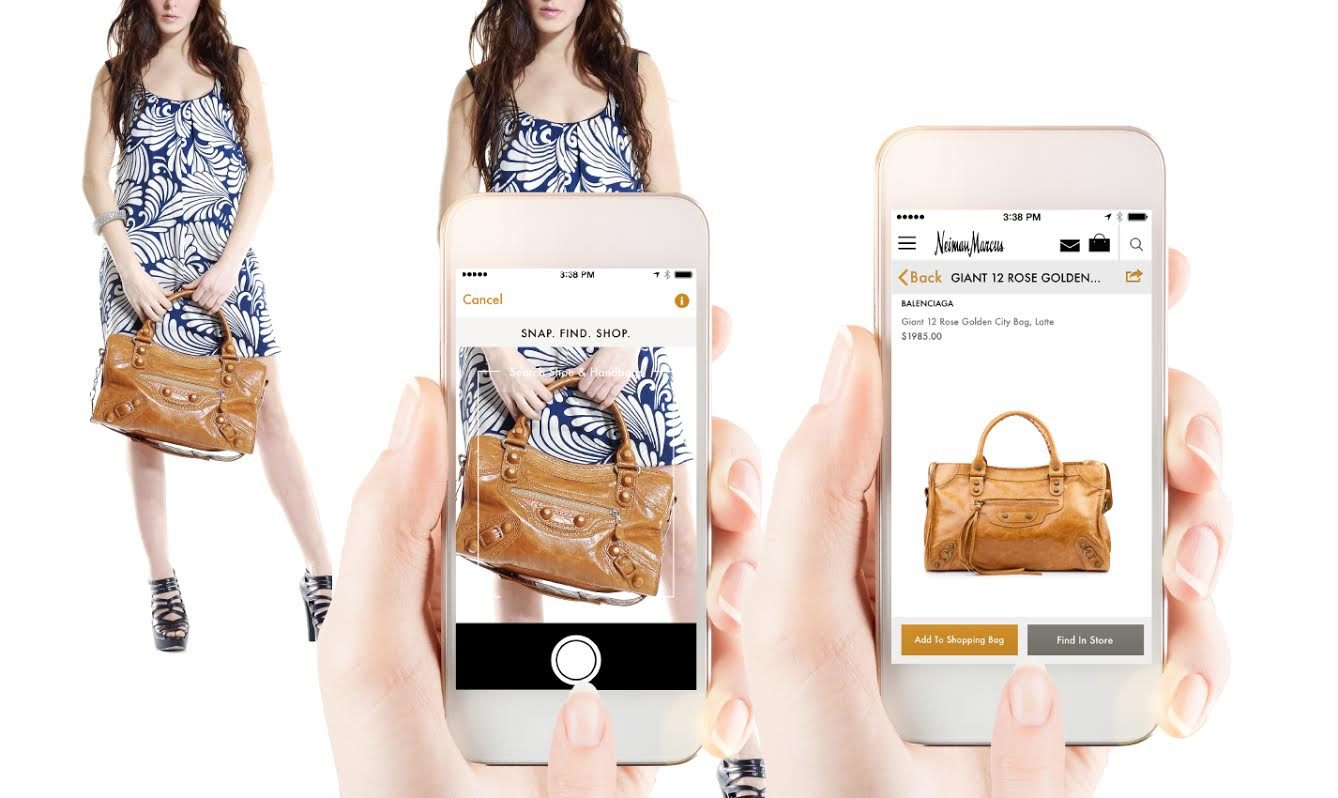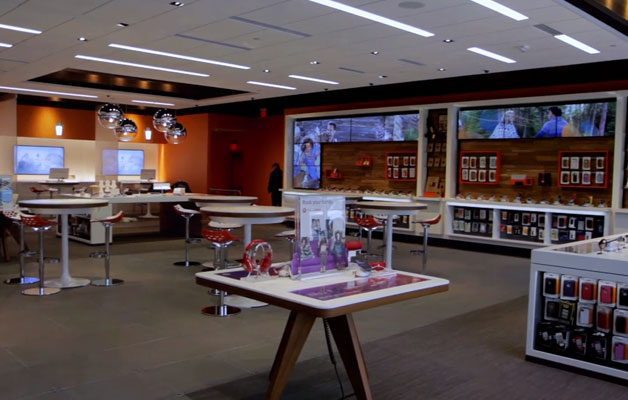When Ross Lohr and Nathan Rothstein founded Project Repat in February 2012, they wanted to prevent retailers and consumers alike from sending used T-shirts to landfills to go to waste. Six years later, the company that repurposes old T-shirts into quilts is bringing its service into physical retail, opening its first brick-and-mortar store to in Newton, Mass.
In 2017, Project Repat crafted 65,000 custom T-shirt quilts for U.S. consumers, saving more than 1.2 million T-shirts from landfills, but the founders have an even bigger goal for 2018 — to sell 100,000 custom quilts. Rothstein and Lohr estimate they have saved as many as five million T-shirts since the company’s launch.
In opening the store, Project Repat sought to place the “maker” at the center of its design process and enable customers to interact with employees that have a deep knowledge of their product offerings. Additionally, the team wanted customers to see and touch samples of finished T-shirt quilts and review a wide selection of fleece colors. Their complimentary one-on-one design services allow customers to meet with a Project Repat designer to lay out their T-shirts in the correct way, so the customer gets a finished quilt tailored as they like it.
“It’s like a showroom,” Rothstein said in an interview with Retail TouchPoints. “We have these design tables where a customer can lay out all their shirts in a grid, and we can take a photo so we can design it how they intend.”
The store also gives shoppers access to discounted prices and the ability to drop off their shirts rather than paying for shipping. While shoppers have to pay a $20 shipping fee when they send their T-shirts through the mail, shipping is free for shoppers who drop off the shirts at the store. The Project Repat team will mail the finished product back to the shopper for no fee.
Store Experience Alleviates Online Ordering Concerns, Fuels Word-Of-Mouth Marketing
Additionally, the store adds value to the Project Repat brand experience, especially for apprehensive customers who want to make an in-store appointment rather than undergoing the typical process of ordering the quilt online and sending shirts in the mail.
“We have an email list of around 450,000 people now,” Rothstein said. “While there’s a lot of people who have signed up, for some reason or another, maybe they were nervous to send their shirts or not as comfortable going to the post office. We felt that people would be more comfortable if they could come into a store and see examples, interact with someone at the store and then get some help with the prep process and design.”
With a store presence, Project Repat hopes to build on its online site and generate more word-of-mouth for the brand, a key priority in an overcrowded e-Commerce environment. Rothstein noted that approximately half of the company’s customers come from either a repeat purchase or a referral, making its social marketing campaigns even more vital to gaining new customers, whether through Google Adwords, Instagram or Facebook.
“What’s interesting about a lot of these direct-to-consumer e-Commerce brands is that it’s never been easier to start your own web site,” Rothstein said. “When we started off, it was only $20 per month to power this full-fledged e-Commerce web site that would have taken us millions of dollars to build 10 years ago. But it’s never been harder to get eyeballs to the site, because there’s just so many web sites out there. We’re really a product that people are not necessarily searching for on the Internet, but once they discover us, that’s when they gain interest. That’s why Facebook and Instagram have been such great advertising tools for us.”
Retailer Seeks To Bring Manufacturing Jobs Into The U.S.
Lohr and Rothstein started Project Repat to alleviate the major environmental impacts of the textile industry — noting that 5% of trash on Earth comes from used textiles, with the average American trashing as many as 65 pounds of clothing very year.
With many T-shirts manufactured overseas, the founders had another goal — “repatriate” more fair-wage manufacturing jobs back into the U.S. (hence the company name). Project Repat works with two factories — Precision Sportswear in Massachusetts and Opportunity Threads in North Carolina — that employ 70 people in total to stitch the T-shirts into quilts every day.
“I don’t know that many other businesses that have scaled an upcycled product — meaning turning something that’s maybe out of use and turning it into a better product,” Rothstein said. “So many people have all these shirts that they no longer wear that they don’t want to get rid of. This is a great way to utilize them in a different way.”



